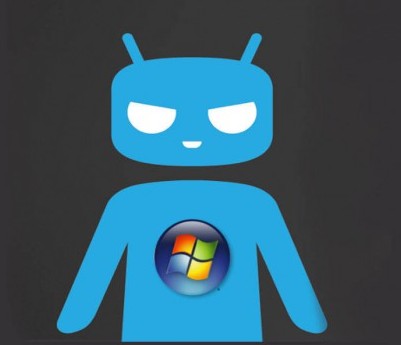
Image credit: Linux Veda
Summary: Now that Cyanogen acts more like a Microsoft attack dog than a real independent entity there is backlash from many and OnePlus dumps CyanogenMod
Cyanogen is not about privacy, not about software freedom, not even about choice. It's about "anti-Google". It has been like this for a while and it got a lot worse once Microsoft paid Cyanogen, almost as though Microsoft rewards Cyanogen for the "Scroogled"-type rhetoric and seeks to use Cyanogen as a Trojan horse or carrier of Microsoft's proprietary and privacy-hostile 'apps' for Android.
MS-CM, or the Microsoft-backed fork and FUD source against Android, is
having issues. Partners leave. Maybe that alone is a reason for leaning on Microsoft. Maybe the "anti-Google" angle is becoming the business model. Days ago
Linux Veda wrote: "Today’s announcement may now mean that OnePlus devices will now longer ship with Cyanogen OS at all, if it turns out that they have made their own ROM."
Only two days later a followup said that
"OnePlus kicks Cyanogenmod out, announces two new ROMs". As the article puts it: "After a disappointing spat with Cyanogen, OnePlus have decided to ditch the once community driven, now Microsoft-back custom ROM – CyanogenMOD - and bring their own ROMs to the market."
So at this stage it was known that Microsoft had become a backer of CyanogenMod and prior to it there was a decent response from Swapnil Bhartiya. The way
Bhartiya put it, "I find Google Android to be the most open platforms out there; if it was not ‘open’, Cyanogen wouldn’t even exist in the first place. Try building an iOS or Windows clone."
As Bhartiya put it: "This is the same CEO who broke a contract with OnePlus, over an email sent from his iPad (and not an Android device) in India just because they got a bigger player Micromax.
"The community was deeply disappointed with what CM did to OnePlus. Now the move to shake hands with Microsoft may further rip the community.
"So how is this going to work for Microsoft? A hypothesis. Enemy of an enemy is a friend. Microsoft will invest in Cyanogen to ensure they have regular stream of revenue and can continue to become a Google rival. The more market Google loses, the more Microsoft gains. Then Microsoft may push their services to be integrated with Cyanogen.
"Are we going to see the triple ‘e’ again: Embrace, extend and extinguish?"
There are quite a few Linux-based mobile OSes that are proprietary, either entirely or partly (e.g. Sailfish OS). Thankfully, Android has been largely FOSS (AOSP), except many of the apps (especially not those that Google makes), and it's this platform that really took off, not webOS for example (although webOS too is being further liberated over time). In automotive telematics and other areas it's common to see platforms that are proprietary and built on top of Linux.
A lot of the "Google controls Android with an iron fist" type of characterisations came from Microsoft-friendly sites like
The Verge (I first spotted this and wrote about it in 2013). It's not that it's 100% untrue, but they have accentuated this to incite against Google and then tried to use it to poison the minds of OEMs while Microsoft (and proxies like Nokia) attempted an antitrust angle, not only in the US but in Europe too.
Microsoft is, as usual, playing dirty. This is the latest example of it and those who give CM the benefit of the doubt do so at their own peril. MS-CM (maybe CMS, as in Cyanogen MicroSoft) is definitely trying to just commit suicide by aligning itself with Microsoft, like many other dead 'partners' (or convenience).
⬆

